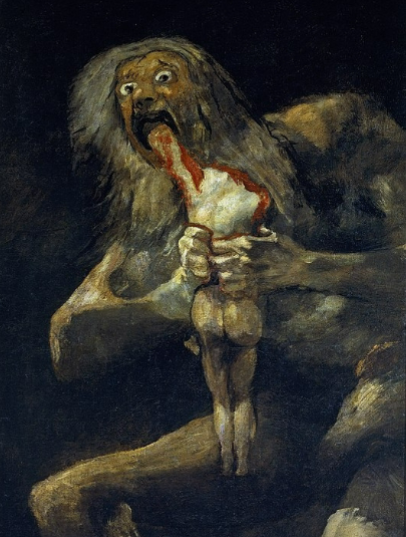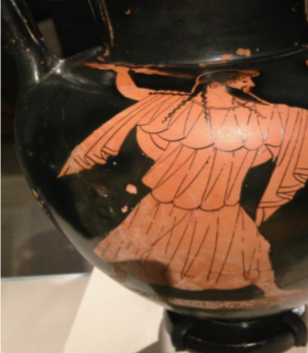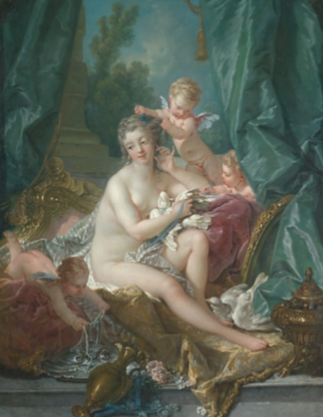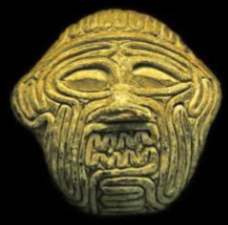Greek & Roman Mythology Midterm 1
1/37
There's no tags or description
Looks like no tags are added yet.
Name | Mastery | Learn | Test | Matching | Spaced |
|---|
No study sessions yet.
38 Terms
Critical Thinking
Not having the answer before asking a question
Thesis
A statement based upon facts that a reasonable person could disagree with
Observation
A statement about more than one fact that every reasonable person will agree with
Idealism
The belief that categories exists “out there” independent of language and human beings. Sometimes these categories are referred to as “natural”
Textualism
Because categories and even mythic figures are constructed by language it is better to try to understand categories and mythic figures as subject to limited change over time rather than imperfect copies of an ideal hero or category.
Historicism
The idea that human beings had fundamentally different ideas of how the world worked in the past and their motives cannot always be understood.
Humanism
The assumption that human beings were essentially the same in the ancient world as in the present
Epic of Gilgamesh
Begins with Wall of Uruk
Temple of Ishtar
Enkidu meditates on the great doors of the palace
Theogony
A poem by Hesiod that recounts the genesis of the gods and organizes disparate ancient Greek myths.
It is important because it collects various accounts of the gods together while simultaneously attempting to explain the cosmos.
Homeric Hymn to Apollo
The hymn is divided into two parts, each focusing on a different aspect of Apollo and telling distinct myths about his birth and the establishment of his sanctuary at Delphi.
The Delian Apollo (Lines 1-181)
Focus: The birth of Apollo on the island of Delos.
Narrative:
The hymn opens by praising Apollo, known for his skill with the lyre and the bow. Leto, Apollo's mother, wanders in search of a place to give birth to her son. She is rejected by various lands, fearing the wrath of Hera, Zeus' wife. Finally, she finds the island of Delos, which agrees to be the birthplace of Apollo after Leto promises that Apollo will build his temple there. Leto endures a long and difficult labor due to Hera's interference, and no other goddess comes to assist except for Eileithyia (goddess of childbirth), who is eventually summoned. After Apollo's birth, the island of Delos is blessed and becomes a sacred center for his worship.The Pythian Apollo (Lines 182-546)
Focus: The founding of Apollo's sanctuary at Delphi, known as the Pythian Oracle.
Narrative:
Apollo sets off to find a place for his temple, eventually choosing the region of Crisa, near Mount Parnassus. At Crisa, he defeats the great serpent or dragon, Python, that guards the area, thus purifying the land for his temple. This victory over Python gives him the epithet "Pythian." Apollo establishes the oracle, where priests (originally Cretans) serve under his guidance and deliver his prophecies. The hymn describes how Apollo guides a ship of Cretan sailors to Delphi, where they become the first priests of his temple.
Homeric Hymn to Dionysus
Metamorphoses
The work is a collection of 15 mythological and legendary stories written in Latin by Ovid,
Many taken from Greek sources in chronological order, the ending being Julius Ceaser’s death
Pygmalion
Talented sculptor
Vergils brother
ruler of Tyre
killed Sychaeus due to his wealth
fell in love with a statue he carved and it comes to life after prayers to aphrodite
disgusted by women who live “their lives in wickedness”
Myrrha
Wanted to have sex with her father
worried about her relationship with her son
mother to adonis
Enkidu
Formed from clay and saliva
Becomes friends with Gilgamesh
Kills Humbaba along with Gilgamesh
dies for killing Humbaba
Shamhat
Sacred Prostitute
brings Enkidu into contact with civilization
feminine
Kronos
From Berossus History of Babylonia
Cronus appeared to Xisuthrus in a dream and revealed that on the 15th of the month Daisios, mankind would be destroyed by a great flood. He then ordered him to bury together all the tablets. The first, the middle, and the last, and hide them in Sippar, the city of the sun
Fears children, swallows them whole
Eats them bc of a prophecy

Metis
In Greek mythology, Metis was the Titaness goddess of wisdom, planning, and cunning. She was also the first wife of Zeus
Heracles
Attributes: Lion skin, club
Areas of Concern: Strength, Spreading Culture
Associated with Phoenician Melqart and borrowed by Romans as Hercules
Assigned 12 labors for killing wife and children (2 don’t count on technicalities)
Perseus
son of Zeus and Danae
killed medusa
rescuer and husband of Andromeda
Ishtar
Concerns: Love, sex, fertility, and war
Attributes: Staff w snakes, headdress (shugurra crown)
“Akkadian name” for Sumerian Innana
Prometheus
Son of Iapetos, brother of Epimetheus, father of Deucalion
Attributes: Fire, eagle, caring for man
Concerns: Technology and Man
Zeus
Areas of Concern: The sky, kingship
Attributes: Beard, Eagle, Thunderbolt
Based on the same root as Roman
Iu- in Iupiter (Jove) and Sanskrit
Dyaush pita (both “sky father”),Associated with Egyptian Amun
and Persian Ahura-MazdaEats first wife, Metis and her child, Athena

Hera
sister and wife of Zeus
Attributes: Crown, Peacock
Areas of Concern: Marriage, family
Apollo
God of music, archery, truth, prophecy, healing, light, and the sun. He was also known as the national divinity of the Greeks.
Hephaestus
Son of Hera
Attributes: Hammer, tongs, donkey
Areas of Concern: Metal working, fire
Associated w/ Roman Vulcan
Aphrodite
Attributes: Cupids, Doves
Concerns: Love, Desire, Fertility
Known as Venus in Roman Mythology

Theseus
Son of Aethra and Aegeus
killed Sinis
killed the minotaur in the labyrinth
succeeded to the sovereignty of Athens
Deucalion
Son of Prometheus
Husband of Pyrrha, daughter of Epimetheus
Survived the flood in Greek Mythology
Humbaba
Guardian of the Cedar Forest of Labininu (Lebanon)
Put there by the god Enlil
Killed by Gilgamesh and Enkidu

Adonis
son and brother of Myrrha and son and grandson of Cinyras
Mortal Lover of Aphrodite
Perhaps related to Akkadian Tammuz lover of Ishtar
Has a Canaanite name
Tiryns
Small archaeological site in Greece abandoned by the 2nd c BCE
Once center of power in Greece before 1200 BCE
Mythical home of Perseus and Eurytheus, who assigned the 12 labors of Heracles
Cyprus
Island located near Turkey
Home to Greeks & Phoenicians and a later territory of Egypt
Now an Independent Republic w/ northern territory occupied by the self-proclaimed Turkish Republic of Cyprus
Uruk
One of the first Cities in Sumer (modern-day southern Iraq) (possibly the first city in history
Home of the temples of Innana and Anu
Mythical Home of Gilgamesh
Magna Graecia
Mt Parnassus
Mount Parnassus was the home of the Muses and Apollo, and was associated with poetry, music, and learning
Ovid
Born March 23rd 43 BCE Sulmo Italy
Died ca 17 CE in exile
Roman Poet. Author of The Metamorphoses, The Heroides, etc.
Exiled for a “poem and a mistake” at the end of his life
Hesiod
Believed to be the poet of the Theogony and Works and Days
Supposedly lived in Boeotia
Supposedly defeated Homer in a poetic contest